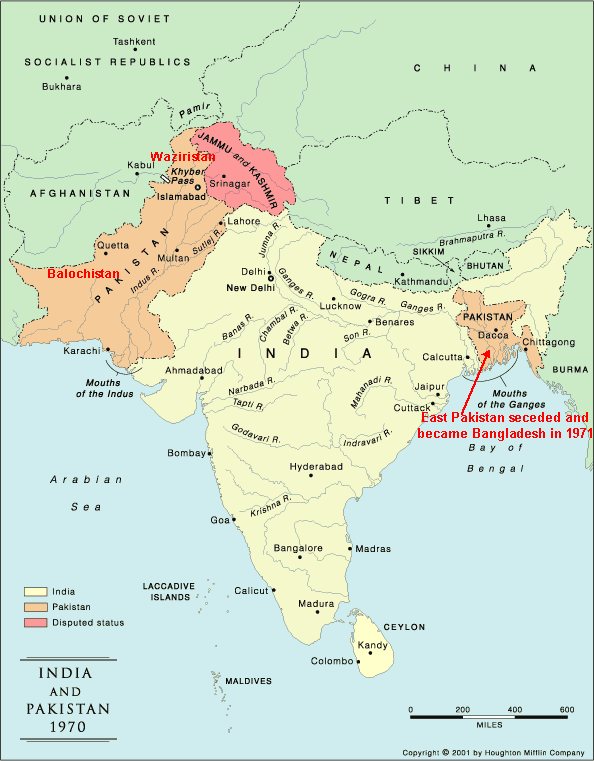Here is my oversimplified Cliff's Notes version of how Bangladesh became Bangladesh and what the Liberation War was all about:
Before 1747: Ruled by various Buddhist, Hindu and Muslim Kings (in that order).
1747 --> 1947: Ruled first by the British East Indian Company then by the British Crown in what is known as the British Raj. Famine racked the country at various points, millions of people died. (The British Raj extends over the entirety of the Indian subcontinent).
1947-1971: The British leave (for various reasons) but before leaving have to divide up the area into new countries. They basically decide to put all the Hindus in India, and all the Muslims in Pakistan. To complicate things, the area that is now known as Bangladesh is comprised of Muslim Bengalis. (There are also Hindu Bengalis who live in the Indian state of West Bengal right across the border.) Instead of keeping all Bengalis together, they decided that Muslim Bengalis should be a part of Pakistan. This area becomes East Pakistan.
A map shows how crazy this made things.

To complicate things further, Pakistan and East Pakistan speak different languages (Urdu and Bangla respectively) are comprised of completely different ethnicities and completely different economies. Pakistan decides the best way to handle these differences is to force the Bengalis to become more like their Western Countrymen. Urdu becomes the state language and Bangla is banned.
In 1970 Sheikh Mujib (a Bengali) wins the election for Prime Minister (over all of Pakistan) the powers that be arrest him and refuse to recognize the election. The Bengalis declare independence and a very bloody war is fought. Millions of people die and millions other become refugees. George Harrison and Ravi Shankar hold The Concert for Bangladesh raising awareness in the West of the atrocities that were being committed. India joins the fight (against Pakistan) and Pakistan loses. Bangladesh is formed in 1971. Many consider it to be the worst genocide since WWII.
The Liberation War Museum basically tells the above story in a very compelling way with tons of heartbreaking pictures and artifacts. It served as a good reminder for me about how young Bangladesh is, and how violent it's birth was.
After the museum all five of us had dinner at the apartment. Everyone was incredibly impressed with Ayub's cooking and couldn't believe how lucky we were to eat so well. They also couldn't believe how great our AC was, and that it stays on when the generator is on, which none of them had ever seen in a residence. We all had a really great time, and hopefully we will all hang out again.
No comments:
Post a Comment